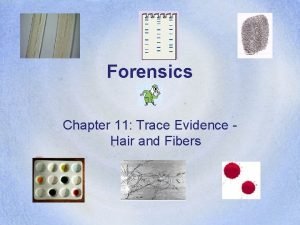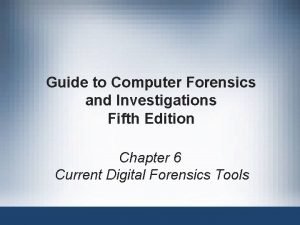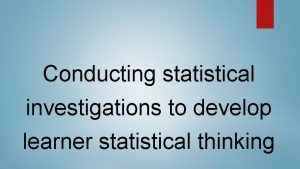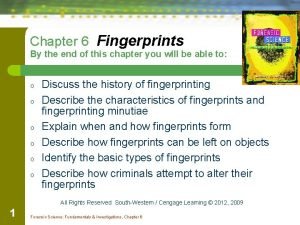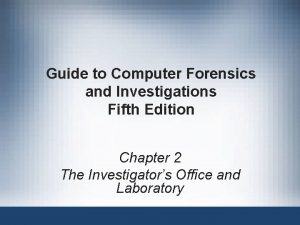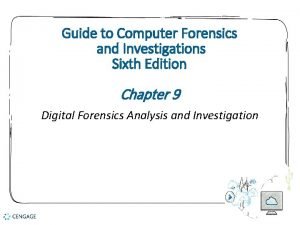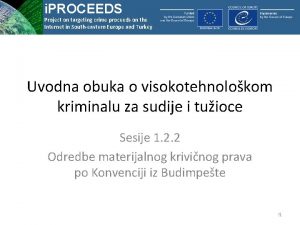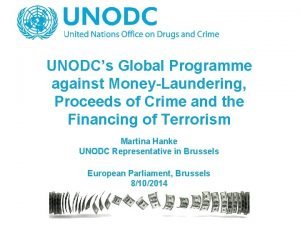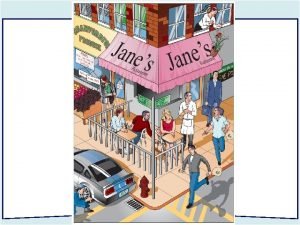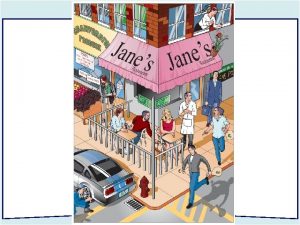Proceeds of Crime Investigations Outside of the EU






![Informal Assistance [UNODC Comprehensive Study on Cybercrime 2013] Informal Assistance [UNODC Comprehensive Study on Cybercrime 2013]](https://slidetodoc.com/presentation_image_h2/049fdb87402fb04a5f48ea8576de0703/image-7.jpg)











- Slides: 18

Proceeds of Crime Investigations Outside of the EU Framework

power to request mutual assistance in relation to criminal investigations. Crime (International Co-operation) Act 2003 s 7(5) No criticism in the case law of the use of standard powers to request mutual assistance in criminal investigations re asset forfeiture. R v Gooch [1999] 1 Crim App R (S) 283 (use of evidence obtained in substantive proceedings) CPS v Gohil [2012] EWCA Civ 1550 (use of evidence in financial remedy proceedings). NB s 375 A POCA (civil recovery)

UN Conventions UN Convention against Illicit Trafficking in Narcotic Drugs and Psychotropic Substances 1988 (Vienna Convention). 1988 UN Convention against Corruption 2005. 2000 UN Convention against Transnational Organised Crime 2000 (Palermo Convention). 2005

UN Convention on Transnational Organised Crime (Palermo Convention, 2000) Article 18 (1): States Parties shall afford one another the widest measure of mutual legal assistance in investigations, prosecutions and judicial proceedings in relation to the offences covered by this Convention…and shall reciprocally extend to one another similar assistance where the requesting State Party has reasonable grounds to suspect that the offence…is transnational in nature, including that victims, witnesses, proceeds, instrumentalities or evidence of such offences are located in the requested State Party….

Council of Europe Convention on Laundering, Search, Seizure and Confiscation of the Proceeds of Crime 2005 (Warsaw Convention) Art 15: The Parties shall mutually co‑operate with each other to the widest extent possible for the purposes of investigations and proceedings aiming at the confiscation of instrumentalities and proceeds. Each Party shall adopt such legislative or other measures as may be necessary to ensure that the requests coming from other Parties in order to identify, trace, freeze or seize the proceeds and instrumentalities, receive the same priority as those made in the framework of internal procedures

Problems with MLA TIME CONSUMING OFTEN REJECTED OFTEN INCOMPLETE
![Informal Assistance UNODC Comprehensive Study on Cybercrime 2013 Informal Assistance [UNODC Comprehensive Study on Cybercrime 2013]](https://slidetodoc.com/presentation_image_h2/049fdb87402fb04a5f48ea8576de0703/image-7.jpg)
Informal Assistance [UNODC Comprehensive Study on Cybercrime 2013]

Law enforcement (police to police) enquiries Taking of witness statements Asset tracing (unless orders of the court are needed)

Egmont Group of Financial Investigation Units Europe I Region Austria Belgium Bulgaria Croatia Cyprus Czech Republic Denmark Estonia Latvia Finland France Germany Greece Hungary Iceland Ireland Italy Lithuania Luxembourg Malta Netherlands Norway Poland Portugal Romania Slovakia Slovenia Spain Sweden UK

Egmont Group of Financial Investigation Units Principles for Information Sharing FIUs should exchange information freely, spontaneously and upon request, on the basis of reciprocity. FIUs should ensure that they can rapidly, constructively and effectively provide the widest range of international co-operation to counter money laundering, associated predicate offences and the financing of terrorism. FIUs should do so both spontaneously and upon request. [July 2013]

Asset Recovery Inter-Agency Networks: CARIN The purpose of CARIN is to increase the effectiveness of its members' efforts, on a multi-agency basis, to deprive criminals of their illicit profits. CARIN contacts support the complete asset recovery process, from the starting point of the investigation involving the tracing of assets, to freezing and seizure, management and finally the forfeiture/confiscation, including any necessary asset sharing between jurisdictions. The representatives of the member states are called “national contact points”. All of them are English speaking as the working language of the network is English. CARIN contacts may be contacted directly by phone or email.

5 th EU Money Laundering Directive EU 2018/843 Expansion of the Trust Registration Service Reporting ownership discrepancies re Centralised registry of accounts. Cryptoasset due diligence beneficial

Freezing and confiscating assets Outside of the EU Framework

European Council Framework Decision 2003/577 JHA on Mutual Recognition of Confiscation Orders, Freezing Orders and other Ancillary Orders. Art 5: The competent judicial authorities of the executing State shall recognise a freezing order…without any further formality being required and shall forthwith take the necessary measures for its immediate execution in the same way as for a freezing order made by an authority of the executing State, unless that authority decides to invoke one of the grounds for non-recognition or a non-execution.

Criminal Justice and Data Protection (Protocol No 36) Regulations 2014 Chapter 2: Certification and transmission of restraint and confiscation orders to other EU member states. Giving effect to overseas restraint orders 9. —(1) Subject to paragraph (2), where the Crown Court receives a copy of an overseas restrain order…the Court must consider giving effect to the order no later than the end of the next working day after the relevant day.

Proceeds of Crime Act 2002 (External Requests and Orders) Order 2005 External requests for restraint orders; Registration of external confiscation orders. Time periods: Crim. PR part 33 applies (r 33. 12). Requirement of dual criminality (447(8) POCA)).

Making external requests s 74 POCA Permits requests for assistance in connection with restraint and realisation of assets. The amount ordered to be paid under the confiscation order must be taken to be reduced by an amount equal to the proceeds of realisation.

Acting without an external request - Ancillary orders (s 41(7)) POCA – disclosure and repatriation orders (DPP v Scarlett [2000] 1 WLR 515). Compliance orders (s 13 A POCA). Appointment of a receiver (ss 48 and 50 POCA).
 Natural selection will ultimately make a species
Natural selection will ultimately make a species Proceeds
Proceeds In this scheme cpu execution waits while i/o proceeds.
In this scheme cpu execution waits while i/o proceeds. Miss drake proceeds to supper
Miss drake proceeds to supper Hair proceeds through stages as it develops
Hair proceeds through stages as it develops Statistical investigations unit 3 section a
Statistical investigations unit 3 section a Tasks performed by computer forensics tools
Tasks performed by computer forensics tools Observation in scientific method
Observation in scientific method Year 6 maths investigations
Year 6 maths investigations Verifact investigations
Verifact investigations Statistical investigations examples
Statistical investigations examples Chs investigations
Chs investigations Chs investigations
Chs investigations Pasco county cpi
Pasco county cpi Craigslist private investigator
Craigslist private investigator Antenatal investigations
Antenatal investigations Forensic science fundamentals and investigations chapter 6
Forensic science fundamentals and investigations chapter 6 Guide to computer forensics and investigations 5th edition
Guide to computer forensics and investigations 5th edition Marking bad clusters data hiding technique
Marking bad clusters data hiding technique




